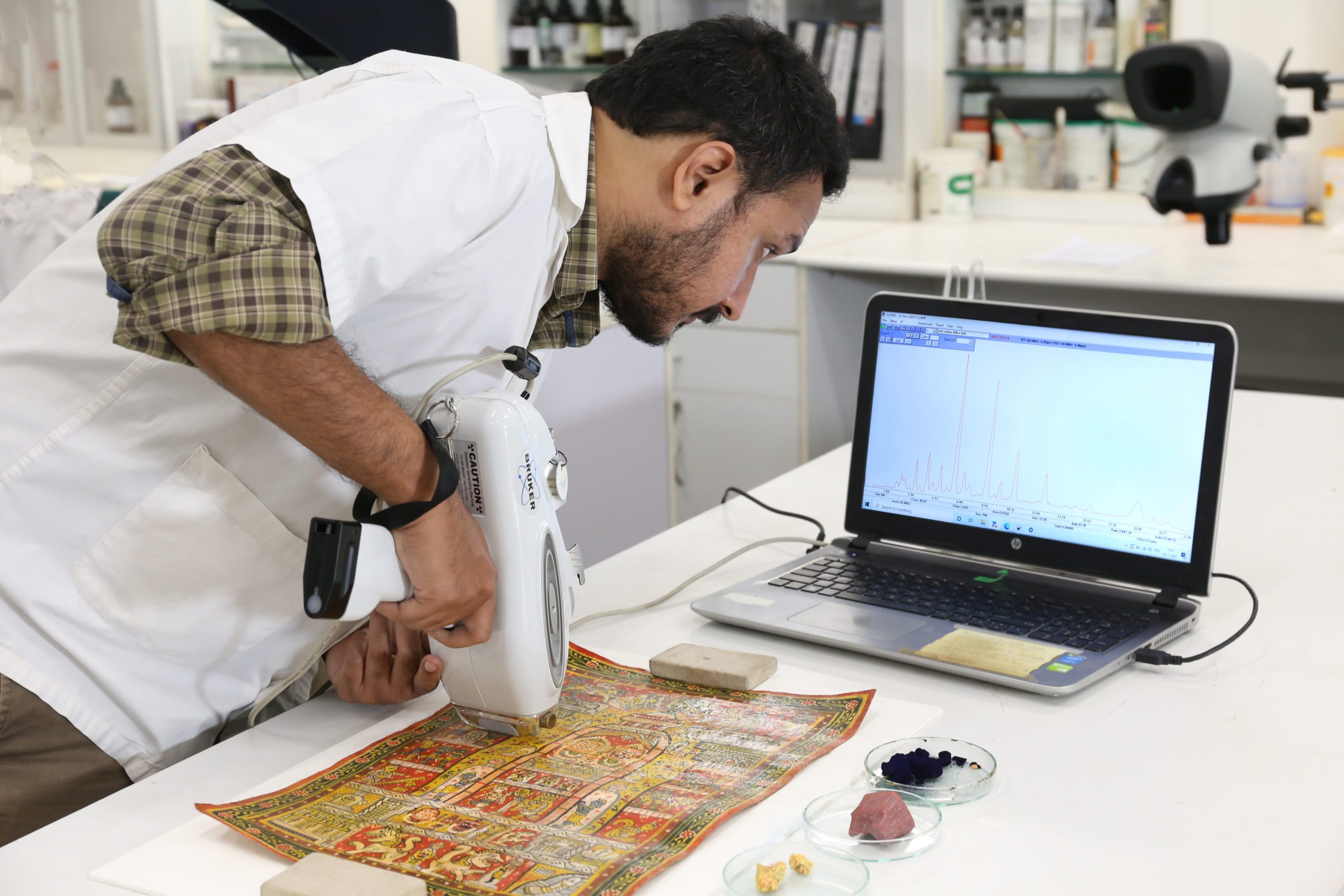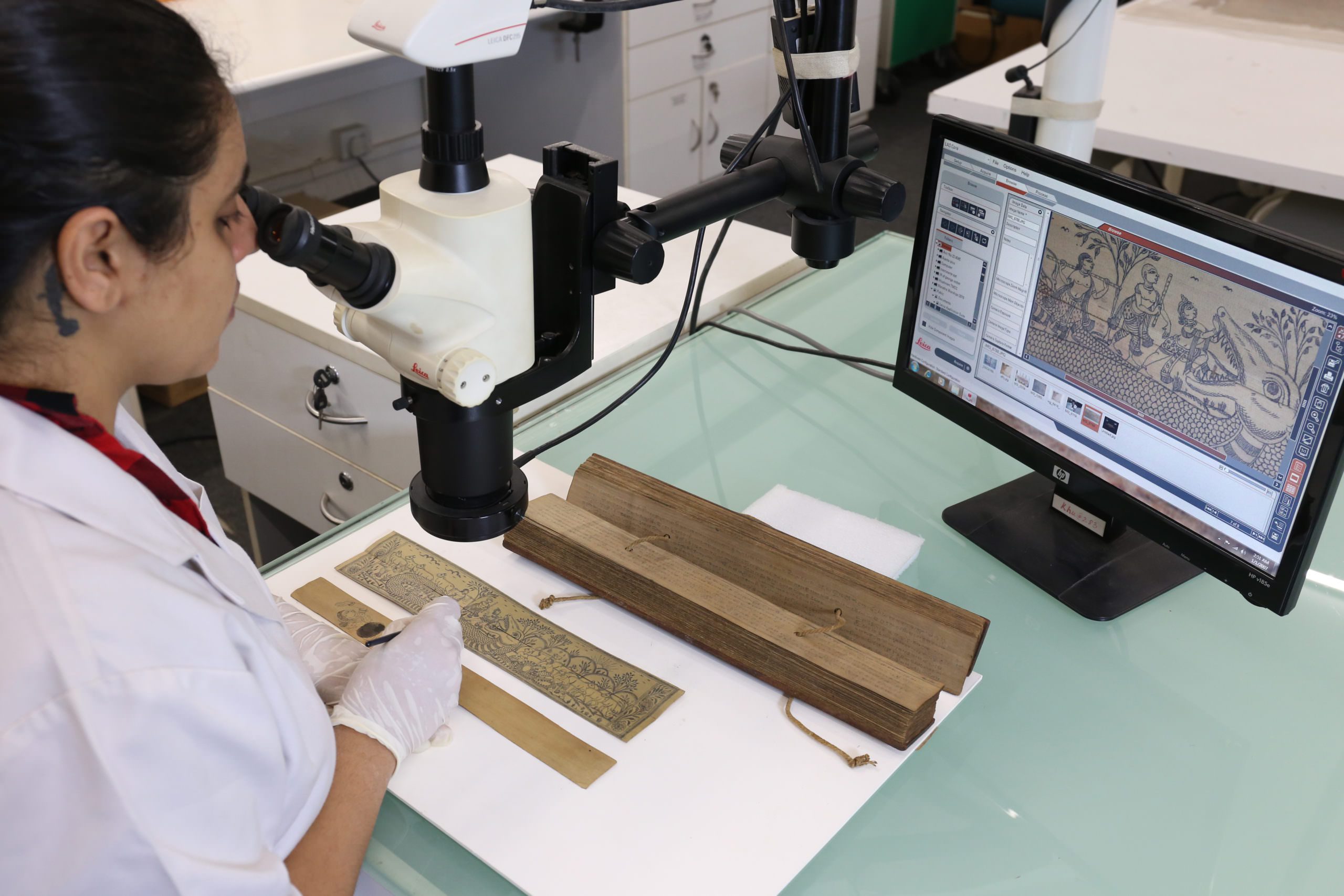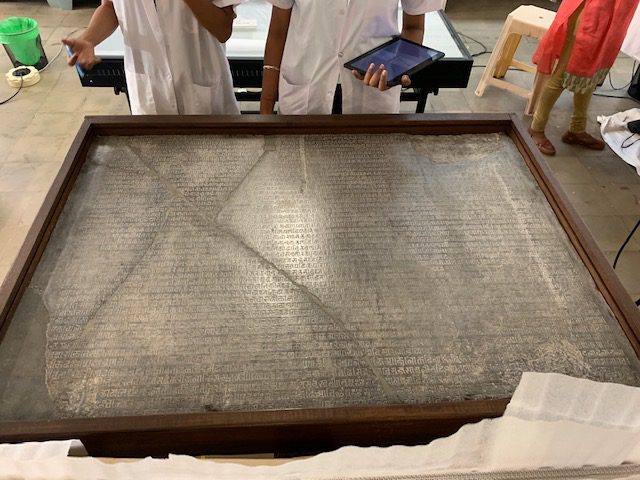Program for Conservation of Culture
The Program for Conservation of Culture (PCC) at the Mittal Institute addressed the lack of manpower and knowledge transfer in South Asia’s cultural conservation.
With the aim to promote a climate for cultural conservation in South Asia, the Program for Conservation of Culture advanced an awareness of cultural heritage among cultural professionals, organized resources related to conservation practices in South Asia by facilitating network-building with leading global and regional conservation experts, and advocated for the sharing of knowledge between the arts and sciences.
Program Coordinators:
Jinah Kim, George P. Bickford Professor of Indian and South Asian Art, Harvard University
Meena Hewett, Arts Program Advisor, Lakshmi Mittal and Family South Asia Institute, Harvard University
The Program for Conservation of Culture addressed some of the issues that surround knowledge sharing, research, training, networking, and policy recommendations in the practice of arts and heritage conservation. With hands-on, awareness-building workshops in the region, we worked to impart robust conservation training and knowledge to South Asia’s conservators.
About the Program
The diversity of South Asia’s built, material, and intangible heritage is perhaps unparalleled throughout the world. Vestiges of the region’s heritage — monuments, artifacts, languages, and stories — are fast being depleted due to environmental and climatic conditions and a lack of care from institutions and individuals. Monuments are at risk with the growth of urban cities; old paintings, manuscripts, and artifacts face material disintegration; and orally passed knowledge and skills are experiencing a loss of patronage.
South Asia’s heritage is intimately linked to peoples’ identities and ways of life. Today’s youth is becoming increasingly sensitive to their history and heritage, making the present moment significant for fostering an understanding of South Asia’s diverse past and transforming attitudes toward culture and heritage among citizens of the future.
One crucial aspect of maintaining cultural heritage for future generations is material conservation of works of art. Caring for these objects, many of which were made using fragile materials, requires training according to the best practices devised by global experts, access to resources, and a keen familiarity with the historical and cultural context of these objects. The current state of research and practice of conservation in India is in an incipient stage and overwhelmed by the enormity of the task of heritage conservation at hand.
Another obstacle to the practice of conservation science in the region is that the current scientific equipment for analyzing works of art is expensive and limitedly available. Cultural conservation in South Asia is also unable to thrive in part due to the slow-moving and siloed nature of museums and cultural institutions in South Asia.
With the aim to promote a climate for cultural conservation in South Asia, the Program for Conservation of Culture (PCC) brought global values of conservation practices in conversation with local needs, existing know-how of materials, resources, climate, legal parameters, and history, and built a solid foundation for future safekeeping and conservation of South Asia’s heritage. One crucial outcome of this program was to train a cadre of scientifically minded experts with a passion for uncovering the stories that objects can tell us.
Conservation Science Training and Research Program (CoSTAR)
In an attempt to bridge the gap between Art History, Museology, Art Conservation, and Conservation Science, the CoSTAR program – in partnership with the Lakshmi Mittal and Family South Asia Institute, Harvard University; Harvard Global Research Support Centre, New Delhi; and the Harvard Art Museums, Harvard University; in association with Chhatrapati Shivaji Maharaj Vastu Sangrahalaya (CSMVS Museum), Mumbai – strengthened the practice of Conservation Science in India. CoSTAR built up a temper of scientific studies in the conservation of art objects in India in conjunction with art historical studies. Learn about its launch in 2020 here.
CoSTAR was envisioned as a series of theoretical and practical modules covering a wide variety of topics in conservation science. Learn more about the modules below:

CoSTAR I, which launched in 2021, comprised nine-week online lectures and created a Knowledge Commons, a virtual platform to bring together museums and cultural and academic institutions to collaborate and share best practices that constitute a viable ecosystem for museums and the scientific study of cultural heritage in India.

CoSTAR II was a series of theory and practical sessions, comprising 40 online and practical sessions over 7 months. It focused on building knowledge in technical studies of painted surfaces that can be applied on a day-to-day basis. Areas of focus included learning how to establish a workspace for analysis of painted surfaces of art objects, including miniatures, sculptures, textiles, oil paintings, and more; how to conduct technical studies to identify pigments; and also how to interpret these results to add value to curatorial, museology, art history, and art conservation expertise.

Workshops and Seminars
The Program for Conservation of Culture regularly holds workshops to break down the barriers to effective cultural conservation practices in South Asia.
